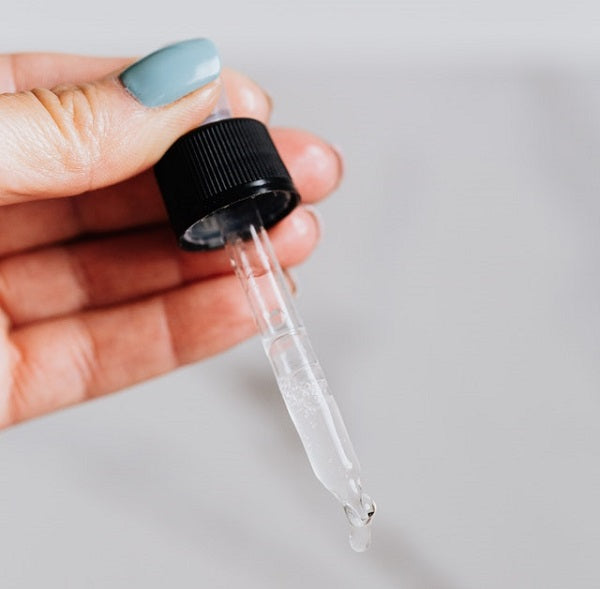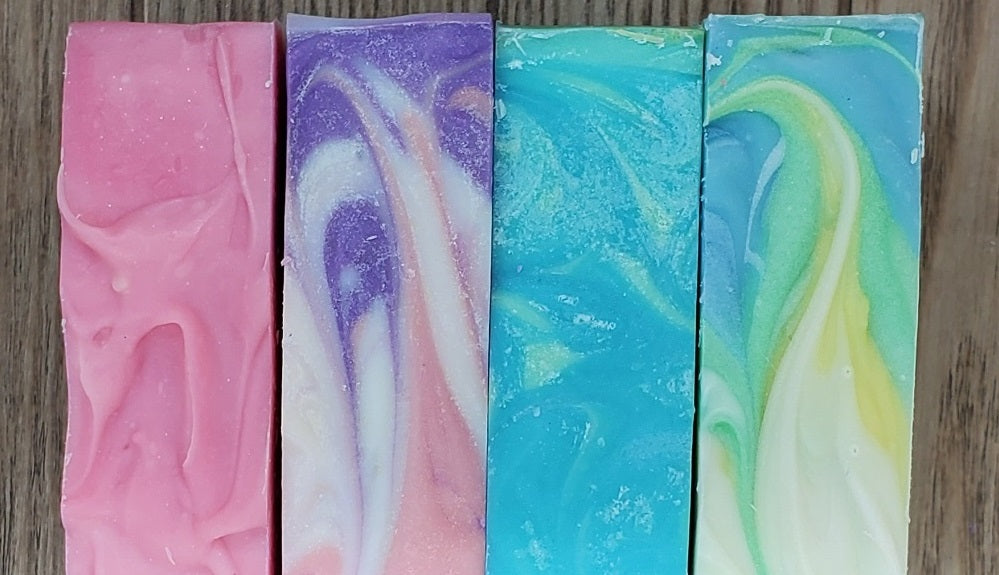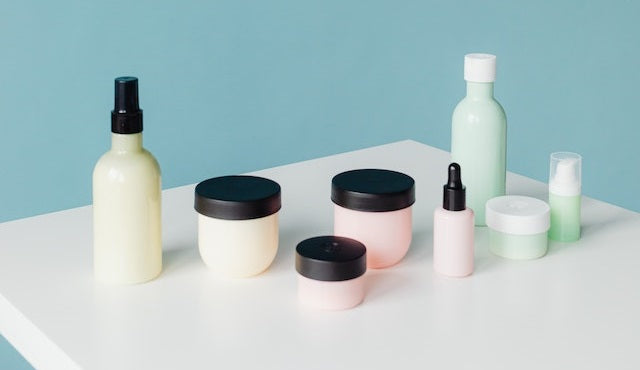If you pay any attention to skincare trends or notice when new products hit the shelves, you've probably seen hyaluronic acid touted as an anti-aging miracle. But what is hyaluronic acid and is it worth the hype? As I am a "woman of a certain age," I've done a lot of digging, trying to go beyond the advertising and looking at the science to see if hyaluronic acid in skincare is necessary. So, let's take a look.
What Is Hyaluronic Acid
Hyaluronic acid is a polysaccharide, meaning it's made up of sugar molecules, specifically D-glucuronic acid and N-acetyl-D-glucosamine (Dicker, et al, 2015). Sounds intense, but it's a basic carbohydrate naturally produced by your body. It's a clear, thin, gel substance around your eyeballs and it cushions and lubricates your joints. The majority of hyaluronic acid in your body is actually in your skin, holding moisture and keeping it plump, smooth, and hydrated.
Unfortunately, over time, the HA stores in your body decline. Typically, this is just a product of time and aging, but smoking, poor diet, and UV exposure can hasten the loss of HA in your body. This leads to excessive dryness, sagging, and a crepe-y (not creepy) look. The good news is that you can replenish it through a synthesized sugar created via microbial fermentation (Liu, et. al. 2011). It's a plant-based hyaluronic acid (sometimes labeled sodium hyaluronate) found in topical products, supplements, and even injections.
In my research I unintentionally found that hyaluronic acid injections work great for penile enlargement. Not sure what to do with this information but there it is.
Benefits of Hyaluronic Acid
The main thing that makes hyaluronic acid so important to skincare is that it can hold 1,000 times its weight in water as well as attracting moisture to the skin as a humectant. Moisture stays in the top layers of the skin, preventing dry, flaky patches plus it penetrates deep into the layers filling in lines and wrinkles and improving vibrancy. Basically, it helps you get your glow on.
The end result? Hyaluronic acid can help you get younger, healthier skin (Papakonstantinou, Roth, and Karakiulakis 2012), and while it's not necessary, it can help your skin feel and look better.
How to Use Hyaluronic Acid for Better Skin
There are two at-home ways to use hyaluronic acid: either topically or in a supplement at home. Supplements can assist with joint stiffness and discomfort caused by osteoarthritis, and some studies show that 120 mg per day can improve the look of fine lines and wrinkles (Oe, Sakai, & Yoshida 2017).
Topical application in skincare products is much more common and offers quick results by providing instant moisturizing to your skin. You'll find it in:
- Cleansers
- Serums
- Moisturizers
- Eye creams
- Masks
What's the most effective way to use it? Honestly, I wouldn't worry about looking for a hyaluronic acid cleanser as it won't be on your skin long enough to really do anything. Instead, I recommend it as a serum or moisturizer so it will be able to do penetrate your skin and hold moisture properly.
Try Hyaluronic Acid in Our Body Yogurt
Looking for a way to try hyaluronic acid to see if it's right for you? Our Body Yogurt contains hyaluronic acid as well as antioxidant-rich plum kernel oil and lightweight apricot kernel oil to penetrate your skin and hold moisture. This gel-cream formula absorbs fast and doesn't leave a greasy feel, making it great for year-round use. While it's available in yummy fragrances, I'd recommend the unscented option for facial skin or sensitive skin.
Dicker, Kevin T. et al. Hyaluronan: A Simple Polysaccharide with Diverse Biological Functions. Acta Biomater. April 2014. Accessed online https://www.ncbi.nlm.nih.gov/pmc/articles/PMC3960342/
Liu, L., Liu, Y., Li, J. et al. Microbial production of hyaluronic acid: current state, challenges, and perspectives. Microb Cell Fact 10, 99 (2011). https://doi.org/10.1186/1475-2859-10-99
Papakonstantinou, Eleni, Roth, Michael., Karakiulakis, George., Hayaluronic Acid: A Key Molecule in Skin Aging. DeramtoEndocrinology. July 2012. https://www.ncbi.nlm.nih.gov/pmc/articles/PMC3583886/#
Oe M, Sakai S, Yoshida H, et al. Oral hyaluronan relieves wrinkles: a double-blinded, placebo-controlled study over a 12-week period. Clin Cosmet Investig Dermatol. 2017;10:267-273. doi:10.2147/CCID.S141845




